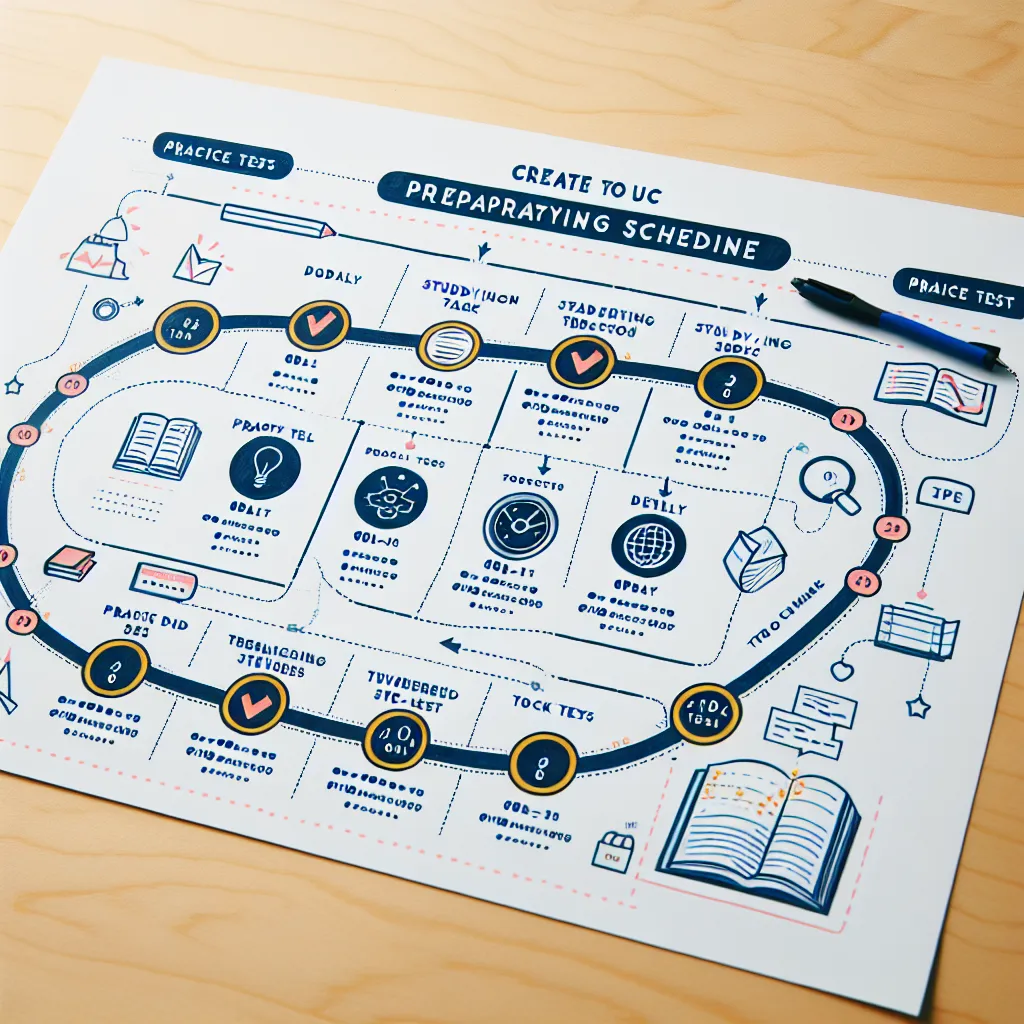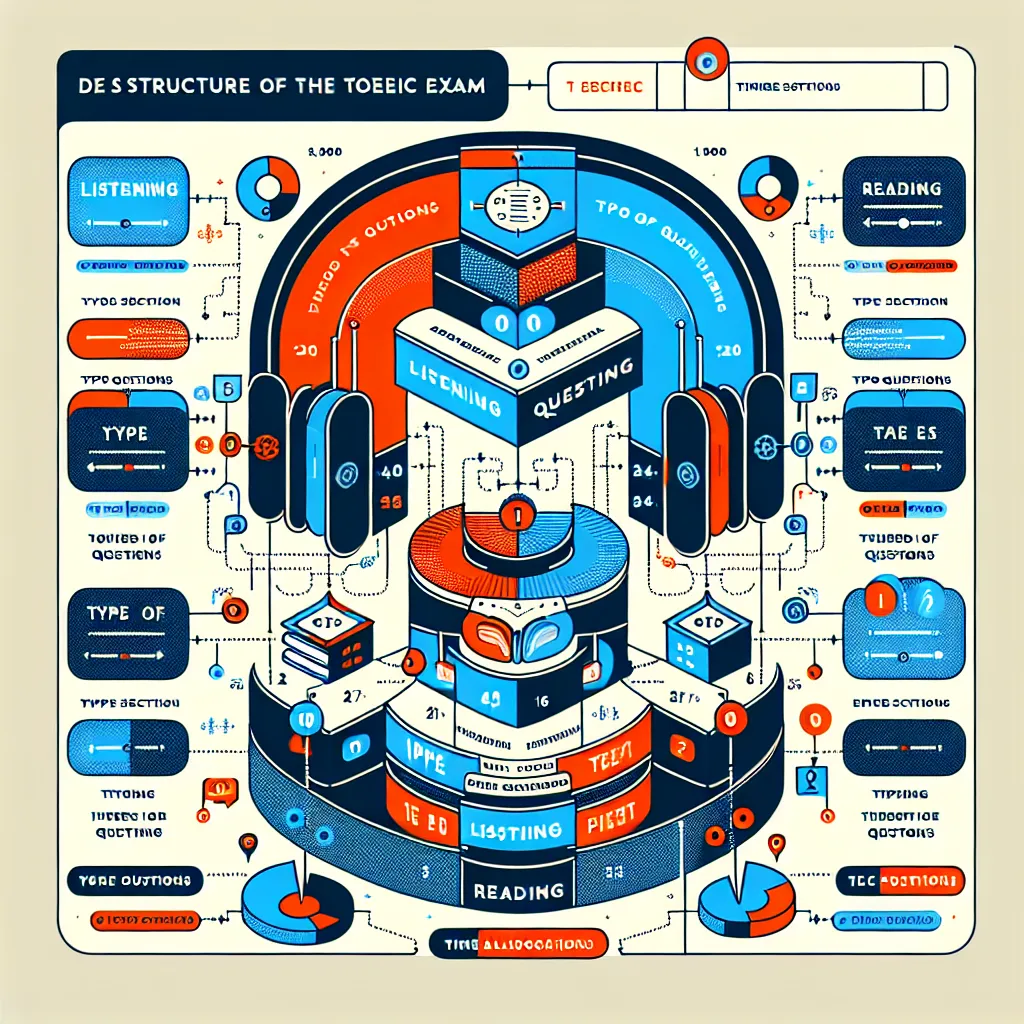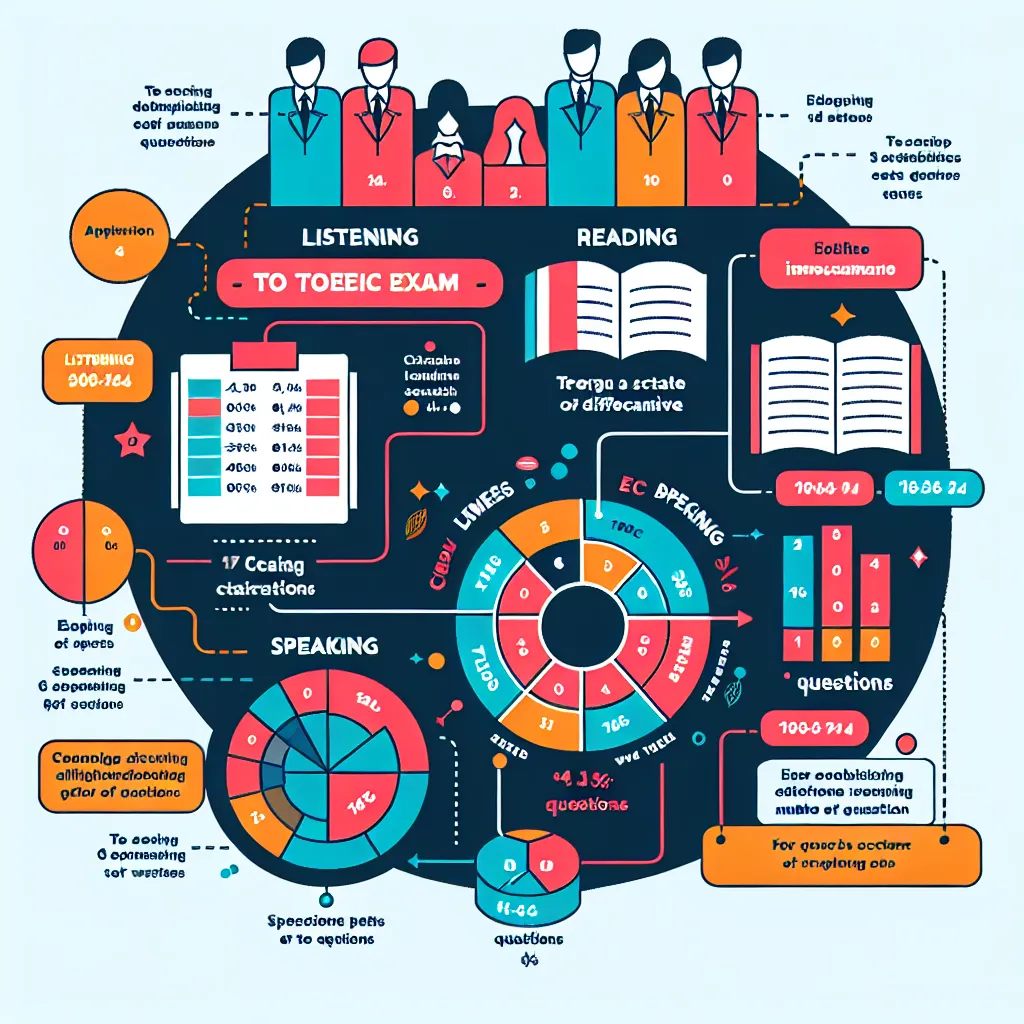Are you considering taking the TOEIC exam but unsure about the right time to do so? You’re not alone. Many English language learners face this dilemma, and it’s an important decision that can impact your career and educational prospects. In this comprehensive guide, we’ll explore the factors to consider when deciding when to take the TOEIC exam, helping you make an informed choice that aligns with your goals and current English proficiency level.
Understanding the TOEIC Exam
Before diving into the timing of your TOEIC exam, it’s crucial to understand what the test entails. The Test of English for International Communication (TOEIC) is a standardized exam that assesses English language proficiency for business and workplace settings. It consists of two main parts: Listening and Reading, and Speaking and Writing (optional in some countries).
 TOEIC exam components
TOEIC exam components
Factors to Consider When Deciding When to Take the TOEIC Exam
1. Your Current English Proficiency Level
One of the most critical factors in determining when to take the TOEIC exam is your current English proficiency level. Here’s a general guideline:
- Beginner (CEFR A1-A2): It’s advisable to wait and improve your skills before taking the TOEIC.
- Intermediate (CEFR B1-B2): This is often an ideal time to consider taking the TOEIC, as you can demonstrate practical language skills.
- Advanced (CEFR C1-C2): You’re likely well-prepared for the TOEIC and should consider taking it soon.
To assess your current level, you can take a TOEIC practice test or consult with an English language instructor.
2. Your Career or Academic Goals
Your specific goals play a significant role in determining the best time to take the TOEIC exam:
- Job Applications: If you’re applying for jobs that require a TOEIC score, plan to take the exam at least a month before your application deadline.
- Career Advancement: If you’re seeking a promotion or transfer that requires English proficiency, consider taking the TOEIC as soon as you feel prepared.
- Academic Requirements: Some educational programs may require a TOEIC score. Ensure you take the exam well before your application deadline.
3. Preparation Time
Adequate preparation is key to achieving a good TOEIC score. Consider the following:
- Set aside 2-3 months for focused TOEIC preparation if you’re at an intermediate level.
- Advanced learners might need 1-2 months of targeted practice.
- Beginners should focus on improving their overall English skills before specifically preparing for the TOEIC.
4. Test Dates and Availability
TOEIC test dates vary by location. Research the available dates in your area and consider:
- Peak seasons (e.g., before university application deadlines) when test centers might be busier.
- Your personal schedule and any conflicts with work or other commitments.
- The time needed to receive your results, typically about two weeks after the test date.
5. Personal Readiness and Confidence
Your mental preparedness is crucial for exam success:
- Take the exam when you feel confident in your abilities.
- Avoid scheduling the test during high-stress periods in your life.
- Consider taking a mock TOEIC exam to gauge your readiness.
 TOEIC preparation schedule
TOEIC preparation schedule
Best Practices for TOEIC Exam Timing
Start Early
Begin your TOEIC journey early:
- If you’re a student, consider taking the TOEIC in your penultimate year of study.
- For professionals, start preparing as soon as you identify the need for a TOEIC score in your career path.
Set a Target Score
Determine the TOEIC score you need:
- Research the requirements for your specific goals (job applications, academic programs).
- Set a realistic target based on your current proficiency and the time you have for preparation.
Regular Assessment
Monitor your progress:
- Take practice tests every 2-3 weeks during your preparation.
- Adjust your study plan based on your performance in different sections.
Consider Retaking the Exam
Remember that you can retake the TOEIC:
- If your first attempt doesn’t meet your target, you can retake the exam after a short waiting period.
- Use the experience from your first attempt to refine your preparation strategy.
Conclusion
Deciding when to take the TOEIC exam is a personal decision that depends on various factors, including your current English proficiency, career or academic goals, and preparation time. By carefully considering these elements and following the best practices outlined in this guide, you can choose the optimal time to take the TOEIC and maximize your chances of success.
Remember, the key is to be well-prepared and confident when you sit for the exam. Start your preparation early, set clear goals, and maintain a consistent study schedule. With the right approach, you’ll be well-equipped to achieve the TOEIC score you need to advance your career or academic pursuits.
Are you planning to take the TOEIC exam soon? Share your preparation strategies or questions in the comments below, and let’s support each other on this journey to English proficiency!




